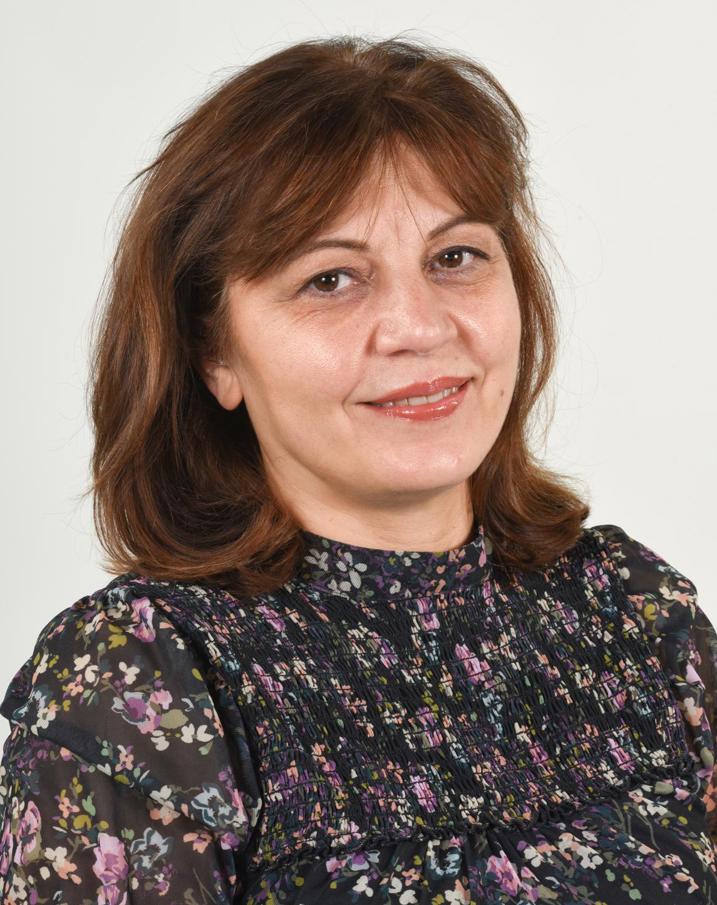Navigating my journey to become a specialist doctor
Dr Mayada Haydar, a specialist in breast radiology at Macclesfield Hospital East Cheshire NHS Trust, shares their journey changing from a specialty doctor to a specialist doctor.
My medical journey started in Syria where I completed postgraduate radiology training in 2001. I specialise in clinical radiology, working in general radiology with a special interest in breast radiology at general hospitals and the private sector. Upon my successful experience leading the breast imaging department at Hama National Hospital, I was nominated by a non-governmental organisation to lead the breast imaging services in a newly established women’s health unit at Salamieh National Hospital.
I relocated to the UK in 2013 where I faced new challenges, working diligently to meet the requirements for GMC registration and successfully passing the IELTS, PLAB1 and PLAB2 exams. Eager to begin my career within the NHS, I initially worked in geriatric medicine in North Yorkshire, providing support during the winter crisis while seeking opportunities to return to breast radiology, which has always been my professional passion.
I wanted to highlight some key factors that have contributed to my successful appointment as a specialist doctor including my clinical experience, commitment to personal development and leadership within multidisciplinary teams.

Enhancing my knowledge
In 2019, I was fortunate to join the first cohort of the RCR’s three-year training programme, the credential in breast disease management for breast clinicians, at the Nightingale Centre in Manchester. The programme aims to develop qualified breast clinicians capable of addressing the growing workforce demands in breast clinics. This comprehensive training not only allowed me to pursue my interest in breast radiology but also enhanced my knowledge in other areas of breast services including surgery and family history clinics. Additionally, I have had the privilege of serving as a trainee representative on the National Oversight Board for the Credential in Breast Disease Management.
Upon completing the credential, I continued to work at the Nightingale Centre on a fixed-term contract as a specialty doctor in breast radiology and family history clinics. My responsibilities included preparing, presenting and discussing radiology findings during pre-clinic morning MDT meetings. Working in a busy and dynamic unit has afforded me numerous opportunities to engage in teaching, research and audit activities.
Alongside my clinical duties, I sought continuous personal improvement by attending national conferences and completing courses tailored for SAS doctors, organised by NHS England. The Northwest SAS Deanery also provided me with invaluable support, offering a wide range of courses in leadership, quality improvement and teaching to help me progress in my career.
Achieving a milestone
I recently achieved a milestone in my career when I was appointed as a specialist in breast radiology at Macclesfield Hospital, delivering both symptomatic and screening services. Achieving this was a significant step in my career, meeting the criteria for specialist recognition through my years of experience in breast imaging, both in Syria and the UK, alongside my ability to work autonomously in clinics.
Securing this post also required fulfilling a comprehensive set of requirements beyond clinical competence including active roles in teaching, research, audit and quality improvement projects. For SAS doctors aspiring to similar roles, it is important to consider your trust's support and available funding for specialist posts.
Teaching
I play an active role in teaching by preparing and delivering sessions to breast clinician trainees and undergraduates through the National Breast Imaging Academy, supervising postgraduates in the radiology clinics and completing case-based assessments on their portfolio. For the e-Learning for Healthcare programme, I’m the author of a session with Professor A Howell, titled ‘Assessment of risk of breast cancer and how to determine the management’. I’m also a member of the executive team and secretary for the Association of Breast Clinicians.
As the number of SAS doctors in the NHS continues to grow, I’m honoured to represent clinical radiology SAS doctors on the steering group at the RCR. This group plays a vital role in creating a supportive network that helps SAS doctors progress in their careers and integrate effectively into the NHS, recognising that many SAS doctors are international medical graduates.
The contributions of SAS doctors to the NHS are invaluable – and they deserve full recognition for their efforts.